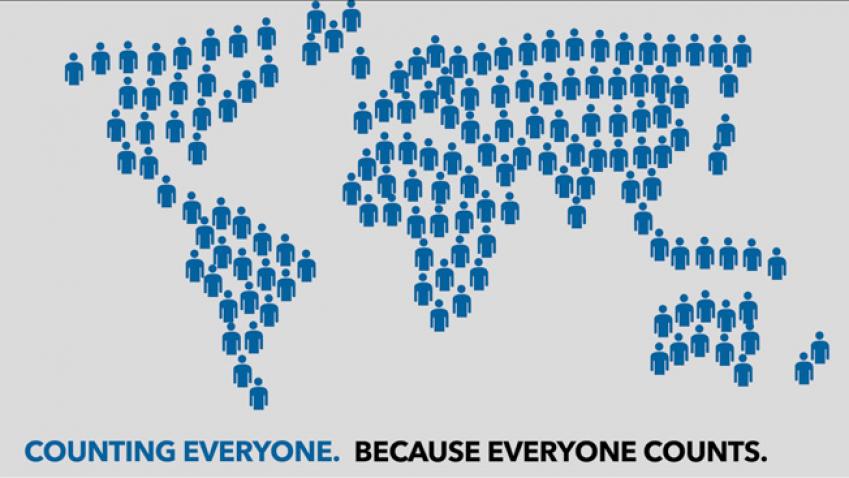Since ancient times, governments around the world have counted their populations. By counting everyone, communities can determine the needs of their people; where to build homes, schools, hospitals and where to invest in food supply, jobs and transportation. In this way, societies can progress. During the 2020 round of censuses, the majority of countries carry out their census. This year, censuses are scheduled to be carried out in 68 countries and territories. UN DESA and the UN Statistical Commission stand ready to support, making sure that the data collected, is data we can trust.
Data and statistics are essential at all levels to understand the world we live in. Official statistics collected via national statistical offices in every corner of the world help us keep track of our progress in meeting the promise of the 17 Sustainable Development Goals (SDGs) agreed upon by all UN Member States in 2015.
“We all know that timely, relevant and disaggregated data is central to achieving the SDGs,” Deputy Secretary-General Amina Mohammed said recently when the Data for Now initiative was launched to ensure that quality and timely data is available to achieve the goals.
To measure our advancements, the global statistical community has agreed upon on a set of indicators. On 3-6 March, over 120 statisticians from across the world will gather for the 51st session of the UN Statistical Commission at UN Headquarters in New York, where they will review and agree on the revisions to the global indicator framework to further support and boost these SDG monitoring efforts.
“The 2030 Agenda has vast data needs. Ensuring that no one is left behind requires data at an unprecedented level of granularity,” UN DESA’s Under-Secretary-General Liu Zhenmin said when he addressed the statistical community last year. He then also stressed the need for enhanced financing and for strengthening the existing statistical capacity around the world to meet the new demands.
As in previous years, the Statistical Commission will cover a wide range of issues; from the traditional censuses and surveys to discussions on big data and earth observation data. It will look closer at better coordination of the UN statistical system, the future of economic statistics, and a framework for statistical geospatial integration. This year’s event will review civil registration, vital statistics and identity management. Health and gender statistics are two other important areas where new approaches are being undertaken.
The Commission also oversees two major events taking place later in the year: World Statistics Day, to be celebrated on 20 October and the Third UN World Data Forum to be held in Bern, Switzerland, from 18 to 21 October this year, which presents a unique opportunity for major producers and users of data and statistics to collaborate in launching new initiatives and innovative solutions that will deliver better data on all aspects of sustainable development.
On the sidelines of the Commission, UN headquarters will be buzzing with some 70 side events on a variety of relevant data topics. In keeping with the tradition of past years, UN DESA’s Statistics Division is organizing a High Level Forum on Official Statistics on 2 March with a focus on Data stewardship – a solution for official statistics’ predicament?
All these events, along with the hard work and efforts of the large group of statisticians that the UN Statistical Commission represents, boil down to one thing: to make sure we gather data we can trust, for people and planet. Because when everyone is counted, everyone counts.
For more information: 51st session of the UN Statistical Commission
About UN DESA
UN DESA Products
UN DESA Divisions
- Office of Intergovernmental Support and Coordination for Sustainable Development
- Division for Sustainable Development Goals
- Population Division
- Division for Public Institutions and Digital Government
- Financing for Sustainable Development Office
- Division for Inclusive Social Development
- Statistics Division
- Economic Analysis and Policy Division
- United Nations Forum on Forests
- Capacity Development Programme Management Office

